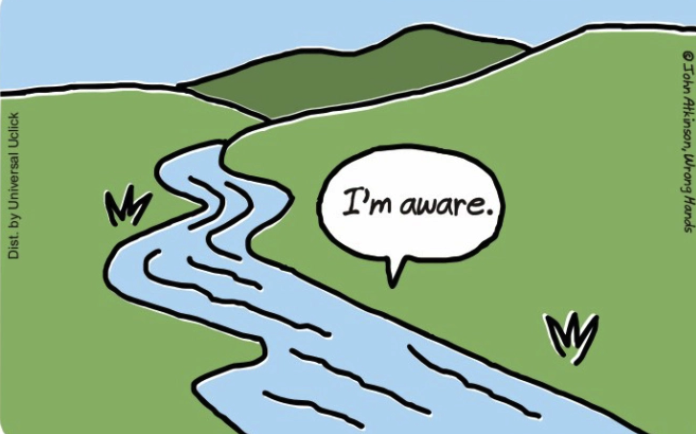“I only got five hours of sleep last night.”
“Really? Well I only got four.”
Walking through the second floor of Hawkins every morning, I hear this type of conversation way too much. Somehow, at Westminster and high schools in general, being exhausted has become a good thing. People think it proves their dedication–AP classes, extracurriculars, sports. They flaunt that they were up until 3:00 a.m. like it’s a badge of honor. It’s not.
Part of the issue stems from the way success is defined in our environment. Being a student at Westminster is a relentless cycle of homework, studying, club meetings, sports, and trying to maintain a social life. With everything that everyone has going on, the more you sacrifice, the more impressive you must be.
The problem is, we don’t just experience this pressure internally—it’s reinforced by those around us. In casual conversations, students swap horror stories about sleepless nights as if they’re trading war stories. Parents may even unintentionally contribute by praising overcommitment, celebrating packed schedules as a sign of ambition.
And then there’s the internet. Social media feeds are flooded with “grindset” influencers pushing the idea that sleep is for the weak, that real success comes from waking up at 4:00 a.m. to study—I’ve seen them, and I’m sure you have too. When this messaging is combined with the already high expectations of school, it creates an environment where students feel guilty for taking care of themselves. But let’s be clear: exhaustion is not an accomplishment.
The irony of this issue is that the very thing we’re sacrificing—sleep—is essential for performance. According to the CDC, teenagers need 8-10 hours of sleep per night, yet studies show that the majority of high school students average less than seven–likely even less at Westminster. Chronic sleep deprivation doesn’t just lead to drowsiness—it impairs memory, weakens the immune system, increases stress, and can even contribute to long-term mental health issues like anxiety and depression.
Even worse, sleeping less isn’t actually worth it. Research has found that well-rested individuals retain information better, make fewer mistakes, and perform more efficiently than those who pull all-nighters. In other words, those late night cram sessions with the organic chemistry tutor are probably doing more harm than good.
Ignoring science, we continue to reward the appearance of hard work rather than the results. We praise students for staying up late to finish assignments rather than questioning why they needed to in the first place. The high school system has created an environment where time spent struggling is seen as proof of effort, even when it’s counterproductive.
Much of the toxic productivity mindset adopted by most students is shaped by institutional norms. Homework expectations have skyrocketed in the past few decades, with most students juggling hours of assignments alongside extracurriculars, sports, and studying for standardized tests. The assumption is that students should be able to balance it all through better time management, but when there simply aren’t enough hours in the day, something has to go– and that something is almost always sleep.
So, how do we stop this toxic culture? Well, it won’t be easy, especially when so many systems reinforce it. But change starts with individuals, and there are concrete steps we can take–both as students and as a school community—to shift toward a healthier, more sustainable definition of success. The first step is shifting our mindset. Productivity isn’t simply about the hours you put in–it’s about doing things effectively and sustainably. Getting a good night’s sleep shouldn’t be seen as slacking off but as an investment in long-term success. Instead of glorifying all-nighters, start normalizing conversations about self-care. Start complimenting a good night’s sleep rather than a bad one. Start being proud of yourself for going to bed early.
Furthermore, one of the reasons students feel pressured to sacrifice sleep is that they haven’t been taught effective ways to manage their workload. We should integrate lessons on productivity that focus on efficiency, not just effort. Instead of relying on mindless rereading or last-minute cramming, students should be taught things like the Pomodoro technique, active recall, and spaced repetition, all of which help retain information more effectively in less time.
Another reason for the toxic productivity culture is the competitive environment at Westminster. Instead of creating a sense of rivalry among students, we should promote peer support systems, study groups, and cooperative learning which can help students manage workloads together instead of feeling isolated in their struggles.
Lastly, a major factor contributing to sleep deprivation is constant digital stimulation—whether it’s scrolling on social media, answering emails at midnight, or feeling pressure to respond instantly to messages. Setting better boundaries with technology can dramatically improve sleep and reduce stress. Set a time at night to put away your phone for the day, use the “do not disturb” function, and try to minimize mindless scrolling.
At the end of the day, sacrificing sleep isn’t a sign of dedication—it’s a sign that something needs to change. If we want to build a healthier academic culture, we need to stop equating exhaustion with success and start valuing sustainable productivity. That means prioritizing rest, working smarter instead of longer, and supporting each other in making well-being a priority. And next time you hear your friends talking about how they slept, be the outlier who says they got eight hours.
Edited by Amir Mason


